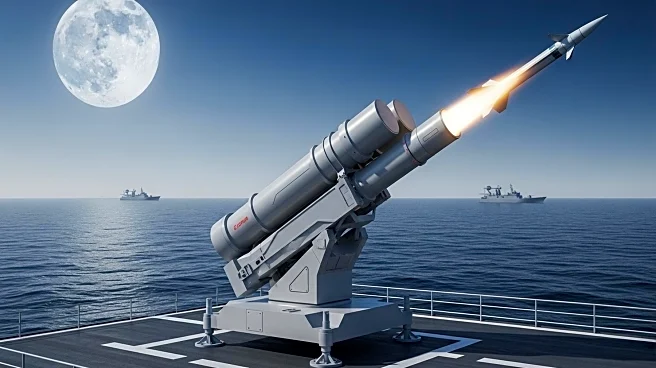What's Happening?
India has successfully conducted a test of its Agni-Prime ballistic missile, a nuclear-capable weapon, from a rail-based mobile launcher at an undisclosed location. This test was conducted under a full operational scenario, according to India's Ministry of Defense. The Agni-Prime missile, described as a new generation nuclear-capable ballistic missile, has a range of 621 to 1,242 miles, which suggests it is primarily aimed at targets in Pakistan rather than China. The test occurred as a Chinese spy ship, capable of tracking missiles, was present in the Indian Ocean, raising concerns about surveillance and intelligence gathering. India and China, both nuclear-armed nations, have ongoing border disputes, and tensions remain high between India and Pakistan following a conventional war in May.
Why It's Important?
The missile test underscores India's strategic military capabilities and its preparedness to counter regional threats, particularly from Pakistan and China. The presence of the Chinese spy ship during the test highlights the ongoing geopolitical tensions in the region, with China and India both enhancing their military capabilities. This development is significant for U.S. foreign policy, as it impacts regional stability in South Asia, a region where the U.S. has strategic interests. The test also reflects India's commitment to maintaining a robust defense posture amidst China's rapid military buildup and its support for Pakistan.
What's Next?
India is expected to continue testing its nuclear-capable missiles as part of its defense strategy, especially in light of China's military advancements and its support for Pakistan. The ongoing military developments may lead to increased diplomatic engagements or tensions between India, China, and Pakistan. The U.S. and other international stakeholders may monitor these developments closely, considering their implications for regional security and global nuclear non-proliferation efforts.
Beyond the Headlines
The missile test raises questions about the ethical and strategic implications of nuclear armament in South Asia. It highlights the delicate balance of power and the potential for escalation in a region with historical conflicts. The development also prompts discussions on the role of international diplomacy in mitigating nuclear risks and promoting peace.










